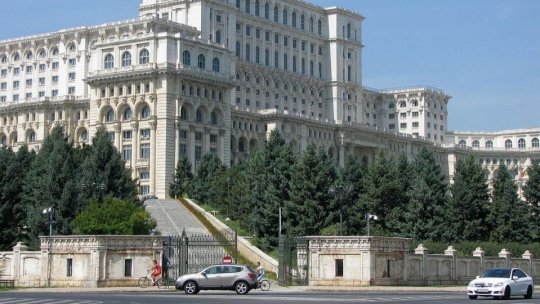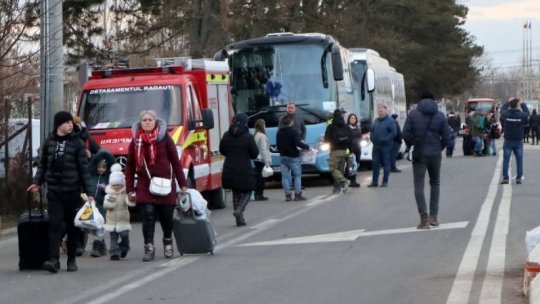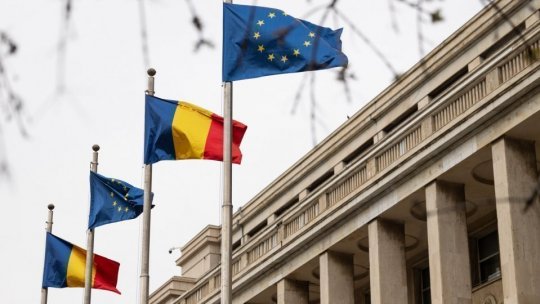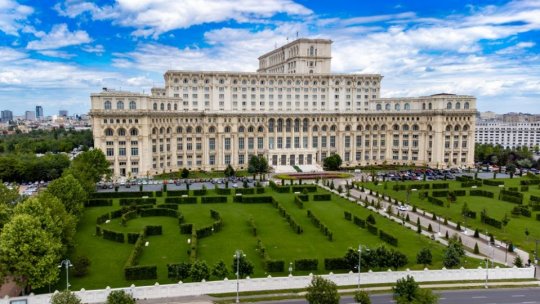Financial Press Review, January 27
Articles from the dailies Ziarul Financiar, Bursa and Curierul Naţional.

Articol de Dinu Dragomirescu, 27 Ianuarie 2011, 19:23
The Ziarul Financiar prints a front page article which reads that, in the four years in the EU, Romania has only absorbed 1.7 billion euro, that is ‘less than 9 percent of the 20 billion euros in structural funds assigned for the 2007-2013 financial exercise.’
The daily also mentions that ‘last December there was the highest absorption rate in all our years in the EU – 1 billion lei (230 million euros) in one month.’
‘As a consequence, in the next three years, Romania will have to absorb the rest of the 90 percent left or at least get projects approved for it.’ Will we succeed? The Ziarul Financiar wonders.
In the same daily Sorin Pâslaru tries to find out where the much expected economic growth could spring from, by analyzing the way ‘with no reason, specialists or efficiency, the Boc Government is undermining its own policies, otherwise rational, to reduce excessive spending on public salaries or special pensions’
Instead of thinking before acting, our Government ‘first passes a bill, ordinance or order, then realizes there is no time to enforce it and that it has opposite results.’
That’s what happened to the unified salary law. It was the same with the special pensions of former Ministry of Interior or Ministry of Defence employees. ‘What is there to do? Postponing enforcing it and a new emergency ordinance, of course. One stutter after another.’
All the financial dailies discuss on what a Bursa headline calls ‘Fuel market war’. ‘The National Agency of Fiscal Administration is suspecting that gas retailers are hiding profits and that there was no reason for gas prices to rise,’ the Ziarul Financiar prints in an article on the same subject.
‘Which companies are hiding profits?’ is the headline of a Curierul Naţional article, which informs us that last year almost all companies reported significant losses. ‘The public institution suspects that gas retailers are actually exporting profits using the transfer pricing method,’ the Ziarul Financiar also reads.
The same daily prints an article by Adrian Cojocar on ‘How main industrial gigants were restructured in the last 20 years: metallurgy.’
‘Global competitors have forced the metallurgy sector in Romania to readjust in order to meet the tough Western performance criteria.’
‘It was privatizations that saved metallurgy. The first step was taken in 2001, when the Galaţi plant was taken over by the Mittal group, after that, other important groups took over the main plants.’
‘Whereas on privatization the plants at Galaţi, Hunedoara, Târgovişte, Câmpia Turzii, Reşiţa and Călăraşi’ caused a 1 billion lei hole in the budget, in 2008 these reported a total profit of 937 billion lei (228 million euros). Nevertheless, the meltdown left its mark in 2009, when they ended the year with 1.8 billion lei (422 million euros) global reported losses, which, however, the big international groups have to pay.’
‘The main issue of the Romanian metallurgy is productivity, which springs from the fact that the number of employees in this sector is usually a few times bigger than the optimum one. In 2009, the six biggest plants had 18 500 employees altogether, 27 500 less than before privatization, and which was painful (…)
Even today the tone-employee productivity is a few times smaller than that in Western countries,’ the Ziarul Financiar points out.
But ‘if we consider the fact that salaries are a few times smaller than those in the West, productivity becomes the same as in developed countries.’
Under the headline ‘Fondul Proprietatea numbs the rest of the Stock Exchange,’ the Curierul Naţional reads that ‘two days in the stock exchange arena, Fondul Proprietatea securities have hogged foreign inverstors’ attention, shadowing the rest of securities.’
Still, ‘ mission FP seems to be headed downhill.’
Translated by: Gabriela Lungu
MA Student, MTTLC, Bucharest University













